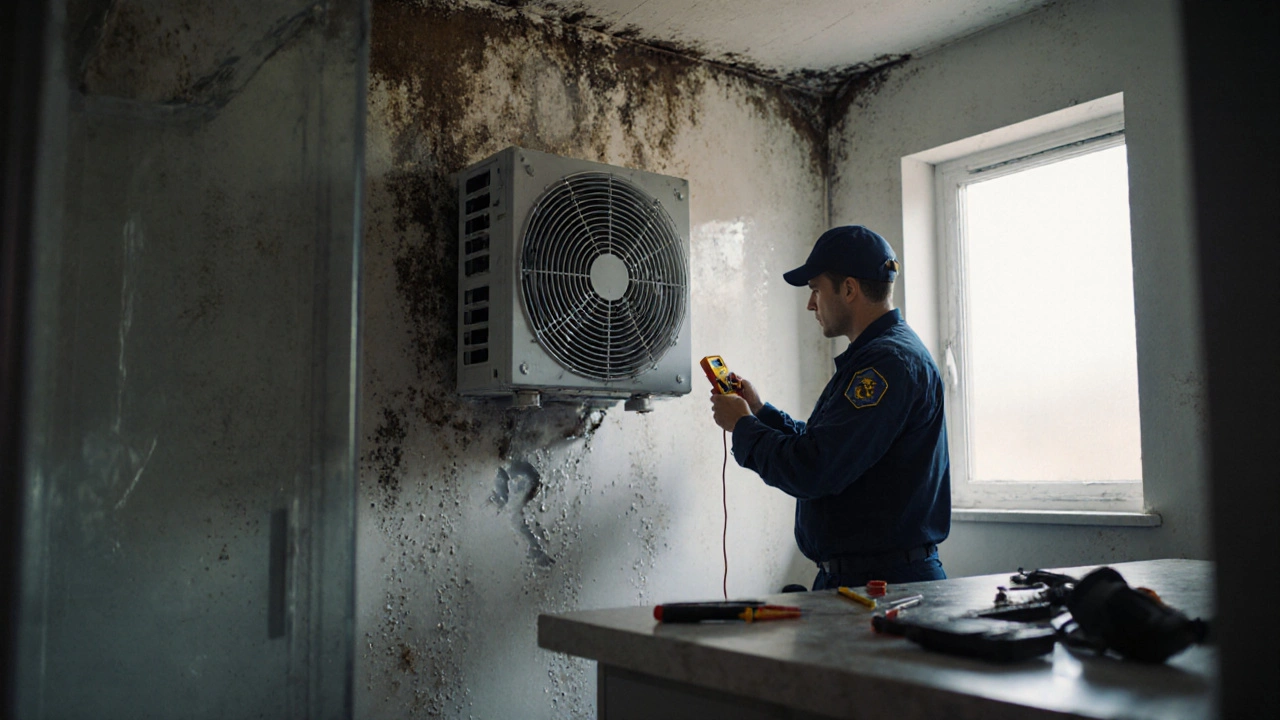Ventilation Fan Technician: Expert Repair and Replacement Guide
When your ventilation fan, a device that pulls stale air out of kitchens and bathrooms to prevent mold and odors. Also known as extractor fan, it exhaust fan runs quietly in the background—until it doesn’t. That’s when you need a skilled ventilation fan technician, a professional trained to diagnose and fix residential ventilation systems. Most people assume these fans are simple, but the motor, capacitor, bearings, and wiring can all fail in ways that aren’t obvious. A buzzing fan isn’t just annoying—it’s a sign something’s breaking down inside.
These systems are everywhere: above your stove, in your bathroom, even in your laundry room. But not every repair person knows how to handle them. An electrician might fix your wiring, but they won’t know the difference between a bad capacitor and a seized motor. A ventilation fan technician brings the right tools and experience. They’ll check for grease buildup clogging the blades, test the capacitor with a multimeter, listen for bearing noise, and confirm if the motor’s still worth saving. Many fans can be repaired for under £100, but if the housing is cracked or the motor’s worn out, replacement is smarter. You don’t need to replace the whole unit—just the motor or the fan assembly. It’s a common fix, and one that saves you hundreds compared to a full system upgrade.
Some fans are older than the house they’re in. If yours is from the 90s or earlier, finding exact replacement parts might be tough. That’s where a good technician shines—they know which modern motors will fit older housings, and how to adapt wiring without cutting corners. They’ve seen the cheap replacements that fail in six months, and they’ll tell you which brands actually last. You’ll also learn what causes most failures: dust, moisture, and running non-stop. A fan that runs 24/7 wears out faster than one used only when needed. Regular cleaning—every six months—can double its life. But if it’s making grinding or screeching noises, don’t wait. That’s not just noise—it’s metal grinding against metal.
Whether you’re dealing with a noisy kitchen extractor, a bathroom fan that won’t turn off, or one that’s completely dead, the fix isn’t always the same. Some issues are quick—cleaning the blades or replacing a switch. Others need a new motor, a rewired circuit, or even a new duct system if airflow is blocked. The posts below cover real cases: how to replace a fan motor yourself, why some fans fail after just a few years, what tools you actually need, and when to call in a pro. You’ll find step-by-step guides for common models, cost estimates from local technicians, and signs you’re being overcharged. No theory. No fluff. Just what works.
When your extractor fan stops working, knowing who to call can save you from mold, damage, and costly mistakes. Learn who’s qualified to replace it and what to watch out for.


